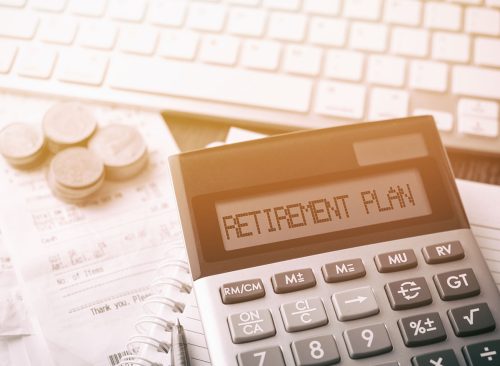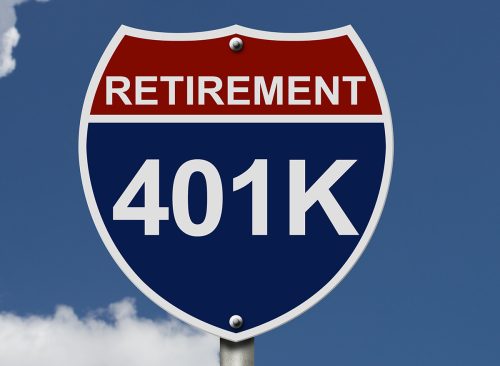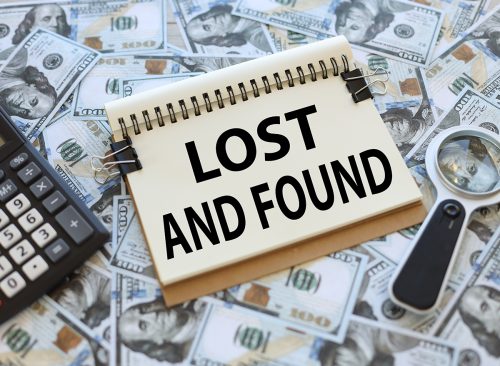11 Retirement Savings Changes You Need to Know About
Financial experts explain what you need to know about the new retirement changes and how to plan.

Americans are not ready for retirement. According to the U.S. Census Bureau data, “50 percent of women and 47 percent of men between the ages of 55 and 66 have no retirement savings,” CBS News reports. “More than one-third of workers feel they are ‘significantly behind’ on their retirement savings,” says Greg McBride, CFA, Bankrate’s chief financial analyst. “And those who already feel behind are twice as likely to be contributing less this year than workers who feel they’re on track or ahead of where they should be.”
While saving for retirement seems like a hopeless goal at times, some relief could come. In December 2022, the Secure 2.0 Act was passed and will directly impact how you save for your golden years. We spoke to several financial experts who shared what to know about the legislation and how it will affect you.

The retirement crisis has gained the attention of lawmakers. President Joe Biden passed the Secure 2.0 Act into legislation, which “contains more than 90 provisions intended to improve retirement outcomes with some changes taking effect this year and next,” Dr. Ann Kaplan, finance expert and founder of iFinance, told us. “Over the next two years, participants can start to see ways they can save, contribute more, and catch up to where they feel they have fallen behind,” she added.

According to Lawrence Sprung, CFP and Founder at Mitlin Financial and Author of Financial Planning Made Personal, “The SECURE 2.0 Act pushes back the required beginning date (RBD) for participants of qualified retirement plans and IRAs to start taking RMDs.” This new provision started on January 1, 2023, and the RBD will move from age 72 to age 73.”
“However, anyone who has turned 72 by the end of 2022 is subject to age 72 RBD,” Sprung adds. “Additionally, the age likely increases to 75 on January 1, 2033. It’s ‘likely’ because there appears to be a drafting typo in the bill that will probably get resolved in the future. It appears the intention was to set age 75 as the RBD in 2033 and beyond. This change would give people more time to push off their RMDs, but could also increase RMDs since more money would be in the account longer.”
Sprung also noted, “Keep in mind that most people will not be impacted by the RMD age increase because they are already taking out more than their RMD at 72. Nearly 80% of people took out more than their RMD at age 70.5, and it’s likely that fewer than 20% take RMD only at 72. This number would drop even more by age 73 and even further by age 75.”

Many changes will roll out this year and next, and one of them is that you can contribute more to your retirement funds. “A large and positive change to your retirement savings is that you can now contribute more to your 401k plan and your IRA or Roth IRA accounts: total is $29,000 ($22,500 for the 401k and $6,500 for the IRAs per individual.)” Jen Reid, financial planner and advisor, founder of BASE Financial Planning, says.
“This is a huge change for people ready to contribute more to their retirement savings!” Kaplan adds there’s now more opportunity to catch up if you fall behind on your IRA contributions. “In 2023, participants can contribute $22,500 to plans such as their 401(k) or 403(b). Currently, those over 50 years old can contribute an additional $7,500 to employer-sponsored plans. That amount will increase to the greater of $10,000 or 50% for employees aged 60-63.”

Reid explains, “The capital gains rate for 2022-2023 is 0%,15%, and 20%. Don’t hesitate to use a brokerage account to save more for retirement; if you max out your IRAs and 401k, you can contribute to the brokerage account with no limits.”
She adds, “The account is not tax advantageous, but if the account assets have been held for over a year, you can have the gains taxed at a long-term capital gain rate.”

“Say goodbye to 10% early withdrawal penalties,” Kaplan says. “Once per year, section 115 of Secure 2.0 will allow participants to access up to $1,000 from retirement savings, emergency personal or family expenses.”

Small businesses will see changes soon regarding retirement options. According to Michael Ryan, a financial coach and planner, “Another change to look forward to is the expansion of retirement options for small businesses. We all know that small businesses play a crucial role in our economy, and the Secure 2.0 Act recognizes that too.”
Ryan adds, “Starting next year, small businesses will have access to more flexible and affordable retirement plan options. It’s like opening up a buffet of retirement plans tailored to fit their unique needs and budgets. This change will empower small business owners to help their employees save for the golden years while also reaping tax benefits.”

Parents who save for their kid’s college could end up with leftover funds. A student may earn a scholarship, get grants, attend a U.S. military academy, or receive unexpected gifts or inheritances from relatives. As a result, they are left with more money than they need to pay for college. Reid explains, “If you have unused 529 College savings accounts from your kids, you can talk to a CPA about having it rolled over to a Roth IRA account. That’s a major benefit for your children’s future and their retirement plan!”

According to Kaplan, “Starting in 2025, employers starting a new plan must enroll everyone at a rate between 3% and 10%. That rate must be increased each year until the employees reach at least 10% but not more than 15%.”

Sprung explains, “The bill will allow employers to let participants in 401(k), 403(b), and governmental 457(b) plans get matching contributions on a Roth basis. It doesn’t require plans to offer this, but creates it as an option.” He adds, “This will go into effect in 2023 and can make sense for many lower-income employees who don’t benefit much from tax deferral, especially early in their careers. Because this is at the direction of the employee, it gives additional savings and tax management flexibility.”

Sprung says, “One of the most interesting changes in the bill is the creation of a national lost and found registry for retirement accounts. States run this today, but it can be almost impossible to find your funds if lost or forgotten.”
He explains, “The way it currently works, money may sit where the plan provider was located, not necessarily the state where you live or where your employer was located. A national directory will be beneficial for consumers, and it’s required to be launched within two years of the bill’s passing.”

Only half of part-time employees are offered retirement plans from their companies, but that’s going to change in 2025. Kaplan states, “Good news for those who work part-time. For anyone working between 500 and 999 hours each year over two consecutive years are eligible to enroll” in 401(k) or 403(b) plans.

“The Secure 2.0 Act allows for a new and simpler version of a 401(k) or 403(b) plan known as a Starter K. All employees default into an automatic enrolled plan with a 3% to 15% compensation deferral rate, with the limit on the deferral being the same as the IRA limit, which was $6,000 in 2022 with a $1,000 catch-up for those 50 and older,” says Sprung. He adds, “This would be a deferral arrangement only, meaning no employer contributions or matching. Certain safe harbor provisions were granted to not run afoul of other ERISA top-heavy rules. However, the employer could still run into some liability issues.”
Sprung says the thing to know is, “The positive of this provision is it makes setting up a super-easy and simple 401(k) plan at work easier. The downside is that some companies that might have started a more robust plan could default to this less robust option. Additionally, employees already had the option to use an IRA in this situation, and it is not clear that the simplified 401(k) will be much better except for automating the process.” He points out that, “The true question here is if small employers with lower-income workers set up plans, which would drive more people to save for retirement than before.”














